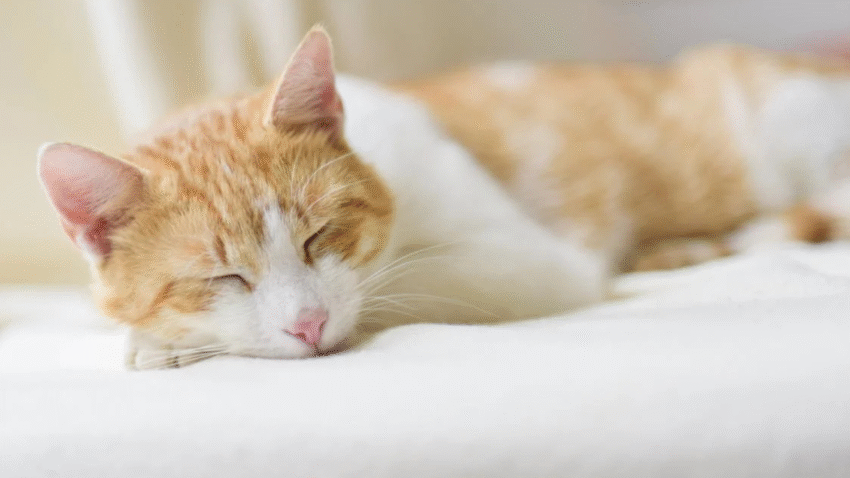Introduction
Want to give your cat a health boost the natural way? In this guide, you’ll learn how to supplement your cat’s diet with natural vitamins safely and effectively. Whether you’re supporting their immune system, coat health, or overall energy, these tips will help you use real food and simple methods to improve your cat’s nutrition without relying on synthetic additives.
Why Natural Vitamin Supplementation Matters
Cats need a balanced diet rich in essential vitamins and minerals to stay healthy. While most commercial cat foods are formulated to be “complete and balanced,” some cats benefit from additional support, especially those with:
- Skin or coat issues
- Digestive problems
- Weak immune systems
- Low energy or age-related concerns
- Homemade or raw food diets
Supplementing with natural sources of vitamins can improve overall health, reduce the risk of deficiencies, and support specific needs without adding artificial ingredients or fillers.
Step-by-Step Guide to Supplementing Your Cat’s Diet Naturally
Step 1: Know Which Vitamins Are Essential
Here are the key vitamins your cat needs and what they do:
- Vitamin A – Supports vision, skin, and immune health
- B Vitamins – Boost energy, support metabolism, and maintain coat health
- Vitamin D – Aids calcium absorption and bone health (cats can’t get this from sunlight like humans)
- Vitamin E – Acts as an antioxidant and supports muscle and skin
- Vitamin K – Important for blood clotting
- Taurine (technically an amino acid) – Vital for heart, vision, and digestion
Understanding what each vitamin does helps you choose the right natural foods to supplement with.
Step 2: Add Safe, Vitamin-Rich Foods
Many natural foods are rich in essential vitamins and safe for cats in small amounts. Here are some great options:
1. Cooked Eggs (Rich in B12, Biotin, and Protein)
- Scrambled or boiled with no salt, oil, or seasoning
- Great for coat health and energy levels
2. Sardines (in water) (Rich in Vitamin D and Omega-3s)
- Feed once or twice a week
- Supports joints, skin, and heart health
3. Pumpkin (Plain, Cooked or Pureed) (Rich in Vitamin A and Fiber)
- Helps with digestion and supports skin and eye health
4. Chicken Liver (Cooked) (Packed with Vitamin A and B12)
- Feed sparingly—too much Vitamin A can be toxic
- Ideal for boosting immunity and red blood cell health
5. Spinach or Kale (Cooked and Chopped Fine) (Source of Vitamins A, C, K)
- Use occasionally in small amounts
- Supports bone and immune health
Step 3: Use Cat-Safe Oils
Certain natural oils provide essential fatty acids and fat-soluble vitamins:
- Salmon Oil – Rich in Omega-3s and Vitamin D, great for coat and joints
- Olive Oil – Adds Vitamin E and healthy fats in very small doses
- Coconut Oil – Helps with digestion and skin, but use sparingly
Start with a small amount (1/4 tsp for an average adult cat) and observe for any signs of sensitivity.
Step 4: Make It a Regular Routine
To ensure consistency without overwhelming your cat:
- Add supplements 2–3 times a week
- Rotate different foods to provide a range of nutrients
- Mix into their regular wet or dry food
- Monitor their reaction and adjust quantities slowly
Keep a simple log of what you offer and how your cat responds over time.
Common Mistakes to Avoid
1. Overdoing It with Vitamin A
Too much liver or high-vitamin-A foods can cause toxicity over time. Limit liver to once or twice a week and avoid large daily portions.
2. Feeding Raw Foods Unsafely
Raw eggs, meat, or liver can carry bacteria harmful to cats. Always cook food gently before serving unless you follow a professionally guided raw diet.
3. Assuming All Human Foods Are Safe
Not all natural foods are cat-friendly. Avoid:
- Onions and garlic (toxic)
- Grapes and raisins
- Chocolate and caffeine
- Raw dough, alcohol, or spices
4. Skipping Vet Consultation
If your cat has health issues, always consult your vet before starting supplements. Some conditions (like kidney disease) require special dietary adjustments.
5. Using Dog or Human Vitamins
Human multivitamins can contain harmful ingredients like xylitol or high levels of fat-soluble vitamins. Use food-based or vet-approved options only.
Extra Tips & Recommendations
- Try Bone Broth (Unsalted): Rich in vitamins, minerals, and collagen—great for hydration and joint support.
- Use Freeze-Dried Organ Meats: Great natural source of nutrients and easy to sprinkle over meals.
- Monitor Your Cat’s Coat and Energy: Positive signs of improved nutrition include a shinier coat, more playfulness, and consistent digestion.
- Consider a Pet Nutritionist: If you’re feeding homemade food regularly, a certified pet nutritionist can help ensure a balanced diet.
Want to support coat health too? Check out our guide on [how to care for your cat’s coat in winter].
Conclusion
Supplementing your cat’s diet with natural vitamins is a simple and powerful way to support their long-term health. By using whole, cat-safe foods and oils in moderation, you can give your cat the nutrients they need without the risks of over-supplementation. Always monitor changes, adjust based on your cat’s needs, and talk to your vet if in doubt.
With small, consistent additions to their meals, you’ll help your cat feel better from the inside out.
